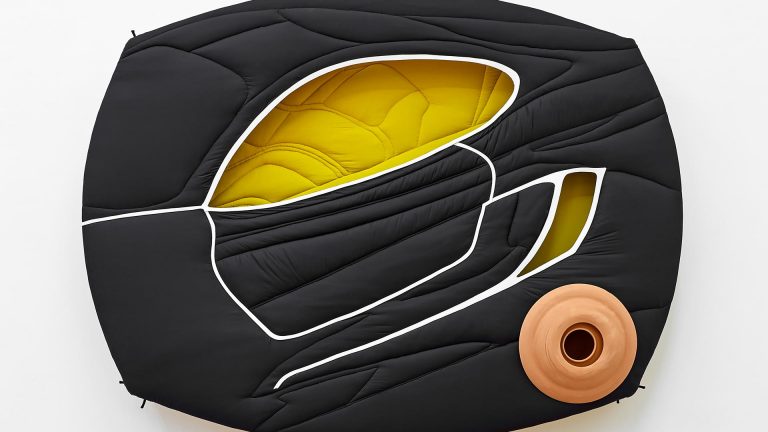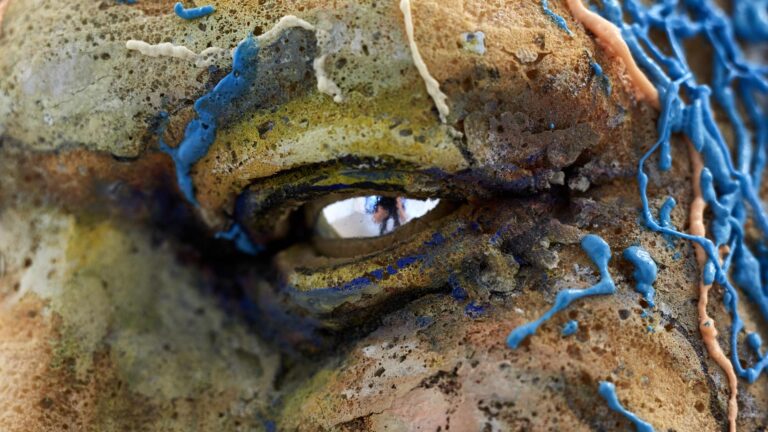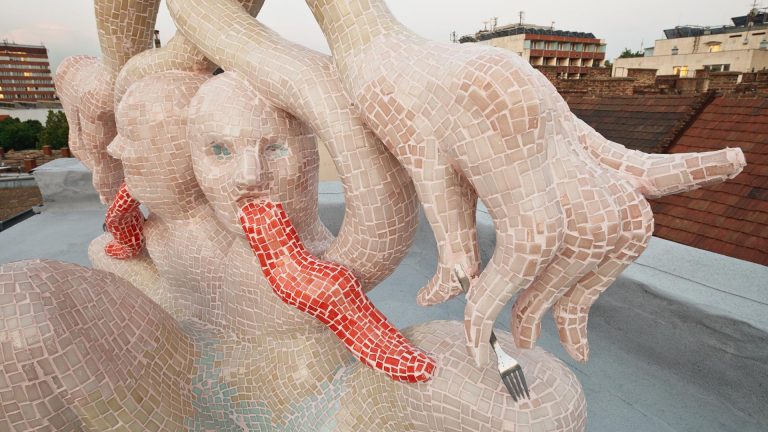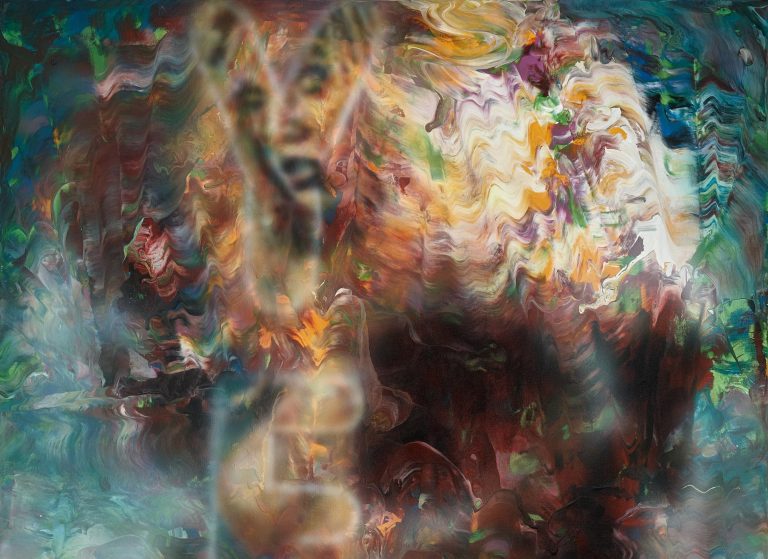Artist: Botond Keresztesi
Exhibition title: F.P.S.-Future/Past/Sunday
Curated by: Peter Bencze
Venue: ENA Viewing Space, Budapest, Hungary
Date: December 2, 2017 – March 24, 2018
Photography: © Aron Weber, all images copyright and courtesy of the artists, Everybody Needs Art
In NASA’s space program, a gold plated phonograph record was included aboard the Pioneer, and later the Voyager spacecrafts in case they were found by intelligent lifeforms. Compiled by Carl Sagan, the information engraved in the records included sounds and images as greetings from Earth, as well as basic information about humanity. We only have speculations about the current whereabouts of these records or whether they were ever found, but when this very record appeared in Botond Keresztesi’s work, a thought came to me: what if it had in fact arrived years ago to a universe unknown to us? Around the 16th century, the theretofore stable model of the world began to change. It had posited the existence of a greater, divine plan every element in the universe was a part of – in other words, that everything existed for a reason. The experiments and theses of modern sciences would not fit this world view, and ideas based on religion, mythology or any other central narrative slowly but steadily began to show cracks. The meaning of things started becoming ever so ambiguous until eventually a rift formed between truth and opinion. According to British philosopher Ray Brassier, nihilism is precisely about this crisis of values and meaning: who can say what is truer than another truth? A less discussed aspect of all of this, however, is that beyond its dark and disillusioned interpretation, nihilism also has a liberating creative force.
What if the record launched by NASA on its journey has actually landed in a dimension very similar to ours, except for a difference in the relation of space and time? Botond Keresztesi is not a nihilist in all probability, but in his art, he creates an entirely new world of various phenomena and the associations related to them. The first-person shooter (FPS) video game titled Wolfenstein was one of the most depressing addictions of my childhood. Covering the walls of the ENA Viewing Space on the rooftop of a tenement house in Budapest, Keresztesi’s site-specific installation instantly tore open the wounds left on my soul by Wolfenstein. The real depiction of virtual space on the walls is adorned with symbols that are difficult to decode at first glance. The giant deformed hand with its elongated fingers is reminiscent not only of Francis Bacon’s tones, but also of the die-cast terrors of (trash) horror movies. Keresztesi’s private universe inverts the relation of fiction and science. Different dimensions merge and the ectoplasm rising from the sports shoe comes in contact with the ecstasy pill modelled on extraterrestrial beings. The Wolfenstein nightmare has come to life, and the golden record is about to smash into it. Gravity does not exist; it is the objects and phenomena that decide whether they wish to float or switch dimensions and exit the painting into the third or fourth dimension. Literacy exists, but letters have different meanings than back on Earth. In the universe of the record, in the titles of the paintings, consensual abbreviations are replaced by new references. And yet, how can we still navigate our way through this and how does Botond Keresztesi know it all?
-Alexandra Karakas
















